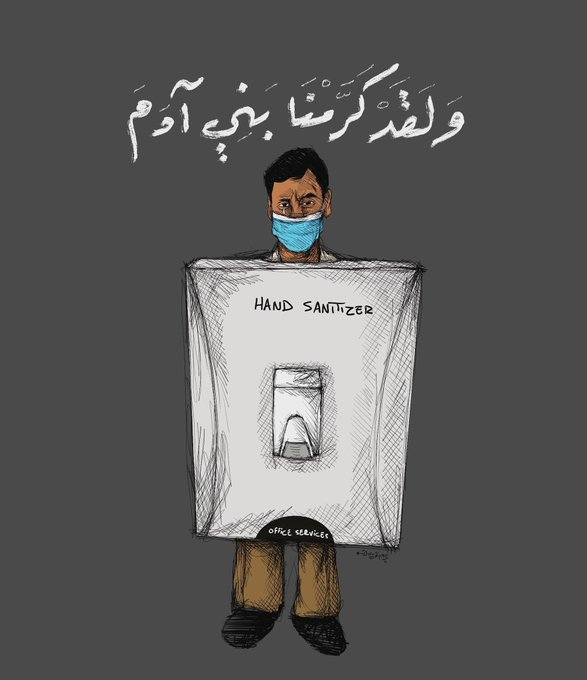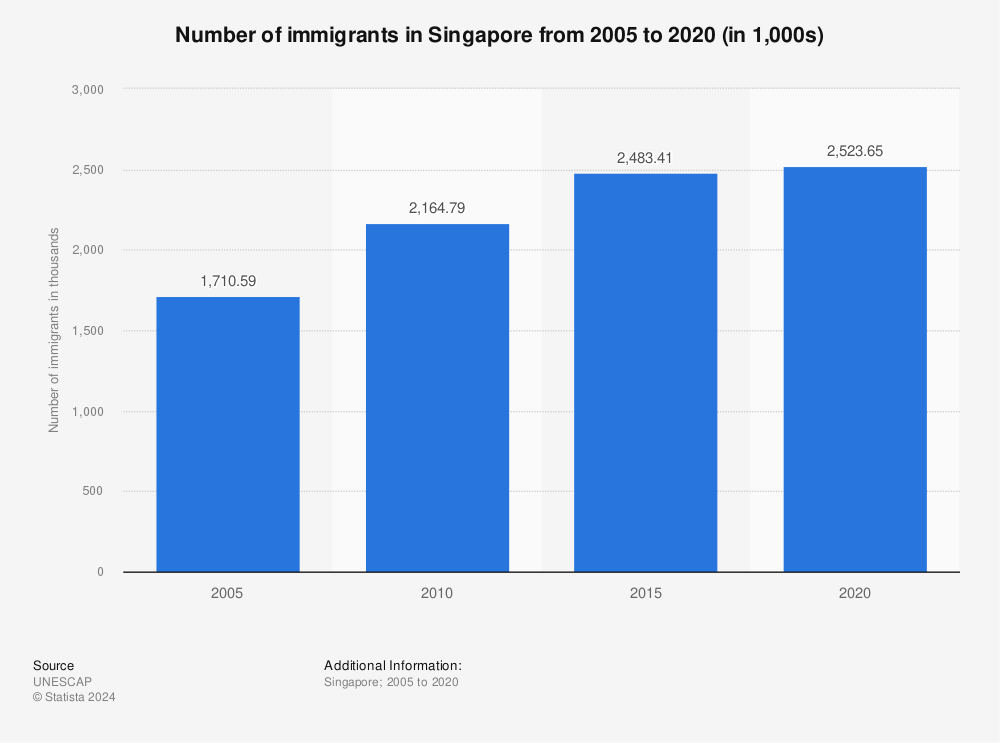Coronavirus epidemic is a scourge on the whole of humanity more or less in an equal measure but for millions of migrants across the world the pandemic has unequal implications. While migrant workers are hit harder in Singapore and the countries in the Gulf, expatriate populations and racial minorities have been at higher risk in many countries in Europe and North America.
The plight of migrant workers and the expatriates is evident from an analysis of the number of cases as well as deaths. These numbers, vis-a-vis those pertaining to the local population, are disproportionately higher in many countries. The severity of the crisis is clear when you consider the global numbers of expatriates. According to Swiss Info, there were as many as 244 million immigrantsglobally in 2015, with the major clusters being in Europe and Central Asia regions.
With more than 2.6 million (2,660,322) having contracted coronavirus so far, it is clear how the pandemic has affected the floating immigrant population across the world.
Taking a look at Singapore, Europe and Gulf
Statista shows that almost 40 percent of Singapore's population are immigrants, among whom about 2.2 million are foreigners including students, various pass and permit holders and the dependents of the citizens as well as permanent residents. However, leaving the permanent residents, the non-residents make up almost 30 percent of the population.
Singapore now has 11,178 coronavirus cases. For the past three days the daily increase in the number of cases in the country has not been less than thousand. Most these newly infected people were from crowded dormitories where low-paid migrant laborers from South Asia and China have been living. Close to 80 percent of all cases are linked to these dormitories, as reported by BBC, and about 12 have died so far.
Europe
More than 1,184,160 COVID-19 cases have been were confirmed in Europe as of today. The Organisation for Economic Co-operation and Development (OCED)'s latest migration report shows that 4.9 million temporary labour migrants entered OECD countries in 2017.
About 4.4 percent of EU population were non-citizens as per 2018 stats. Among them the highest non-nationals were in Luxembourg, accounting for 48 percent of its total population.
The WHO issued a guideline on March 30 that measures taken against COVID-19 should include refugees and migrants. Over 1,600 unaccompanied children from many countries are now tapped in the Greek Aegean Islands, faced with violence, discrimination and poverty. They run a higher risk of contracting novel coronavirus, reported the Human Rights Watch today.

Aurélie Ponthieu, a humanitarian specialist at MSF said that migrants' residential places are overcrowded, while they face issues like high water scarcity water, especially in case of Dublin regulation. "If they fear they will be arrested when going to the doctors, they won't report symptoms that could be linked to COVID-19," Ponthieu told Foreign Policy
Almost half of Italy's agriculture workforce are migrants, while in Sicily, workers are mostly from Africa. Most of them live in places where physical distancing and hygiene become impossible. Lack of documents makes it worse as coronavirus financial support is inaccessible to them, reports The Nation.
Gulf countries
According to the Population Division of the United Nations Department of Economic Affairs (UNDESA) 2019 figures, there were 35 million international migrants in Gulf Cooperation Council (GCC) countries plus Jordan and Lebanon.
Migrant workers here work under a system called kafala, restricting them from changing employers without consent. In most of these countries employers confiscate their passports to prevent them from moving to other jobs.
Worse still, many of the Gulf countries that employ millions of people from poor Asian nations are seeking the migrants' return to their respective home countries amid the pandemic. This comes in the wake of disproportionate rise in the number of Covid-19 cases among the migrant population. The lack of financial means to afford better healthcare and the soft pressure of host nations to return to home countries put the migrant workforce at a huge disadvantage.
Workers spend decades working to feed their families in other countries, hoping to return home once. However, if they contract coronavirus and die in a foreign land, the hopes of transporting the body back home are dim, reports Straits Times. "Nobody comes anymore, nobody touches, nobody says goodbye," said Ishwar Kumar, manager of a Hindu Cremation Ground in a desert area south of Dubai.

In Dubai's Al Quoz, a posh neighborhood, journalist from Associated Press reportedly saw more than 20 people standing for hours in rain outside a clinic, worried that they contracted the virus, an NY Times report said.
Amnesty International recently criticized Qatar after it deported migrant workers and stripped of salary and benefits even as the workers believed they were being taken for coronavirus testing. The country alleged that the workers illegally manufactured and sold banned substances, a charge they denied while speaking with Amnesty.
In Saudi Arabia nearly 13,000 people have been infected with the coronavirus. According to the government data, foreigners account for nearly 80 percent of the confirmed cases. In other Gulf countries like Kuwait, the UAE and Bahrain, nearly all coronavirus cases are among foreigners, the Guardian reported. Many of these people live in camped labour camps.










